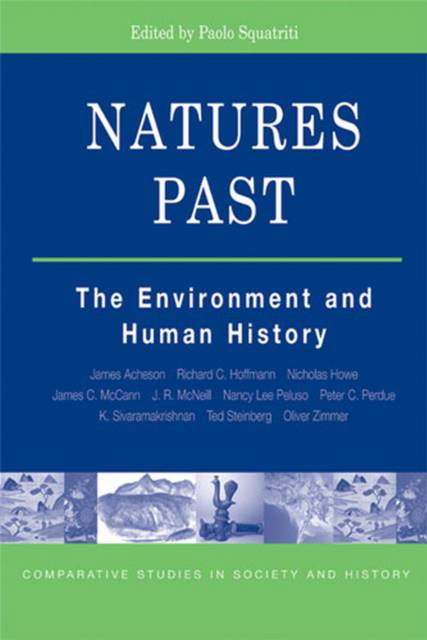
- Retrait gratuit dans votre magasin Club
- 7.000.000 titres dans notre catalogue
- Payer en toute sécurité
- Toujours un magasin près de chez vous
- Retrait gratuit dans votre magasin Club
- 7.000.000 titres dans notre catalogue
- Payer en toute sécurité
- Toujours un magasin près de chez vous
Description
At the beginning of the twenty-first century, environmental change is a pressing public issue across the globe. Natures Past seeks to lend some historical depth to current debates about man-made modifications of ecological processes and systems and also to explore the global dimensions of the dynamic relationships natural environments establish with people. The ten essays in Natures Past discuss the diverse approaches to environmental history, demonstrating that significant environmental change is not a modern invention and people have long been transforming their natural surroundings, often in unintended ways. Natures Past also shows that humans have not always had antagonistic relationships with nature but have also successfully found new, stable relationships with the natures they inhabit. The essays, comprised of contributions by anthropologists, foresters, historians, and literary scholars, discuss malaria-bearing mosquitoes, Maine lobster fishing, Bornean durian husbandry, and American lawn mowing, among other things, and suggest how ecology, culture, and market interact to change the fate, and the value, of nature in each context. "An elegant collection of essays on environmental history by its finest scholars, demonstrating global, chronological, and interdisciplinary range."--J. Donald Hughes, John Evans Distinguished Professor, Department of History, University of Denver"With topics ranging from the metabolism of medieval cities to recent management trends in the Maine lobster industry, Natures Past is a collection of ten essays that expertly illustrates the cosmopolitan character, the interdisciplinary approaches, and the widely varying subject matter that characterize the subdiscipline of environmental history."--William H. TeBrake, Department of History, University of Maine Paolo Squatriti is Associate Professor of History and Romance Languages and Literatures at the University of Michigan. His previous books are: Working with Water in Medieval Europe: Technology and Resource-Use and Water and Society in Early Medieval Italy AD 400-1000.
Spécifications
Parties prenantes
- Auteur(s) :
- Editeur:
Contenu
- Nombre de pages :
- 368
- Langue:
- Anglais
- Collection :
Caractéristiques
- EAN:
- 9780472069606
- Date de parution :
- 01-03-07
- Format:
- Livre broché
- Format numérique:
- Trade paperback (VS)
- Dimensions :
- 161 mm x 228 mm
- Poids :
- 489 g







